
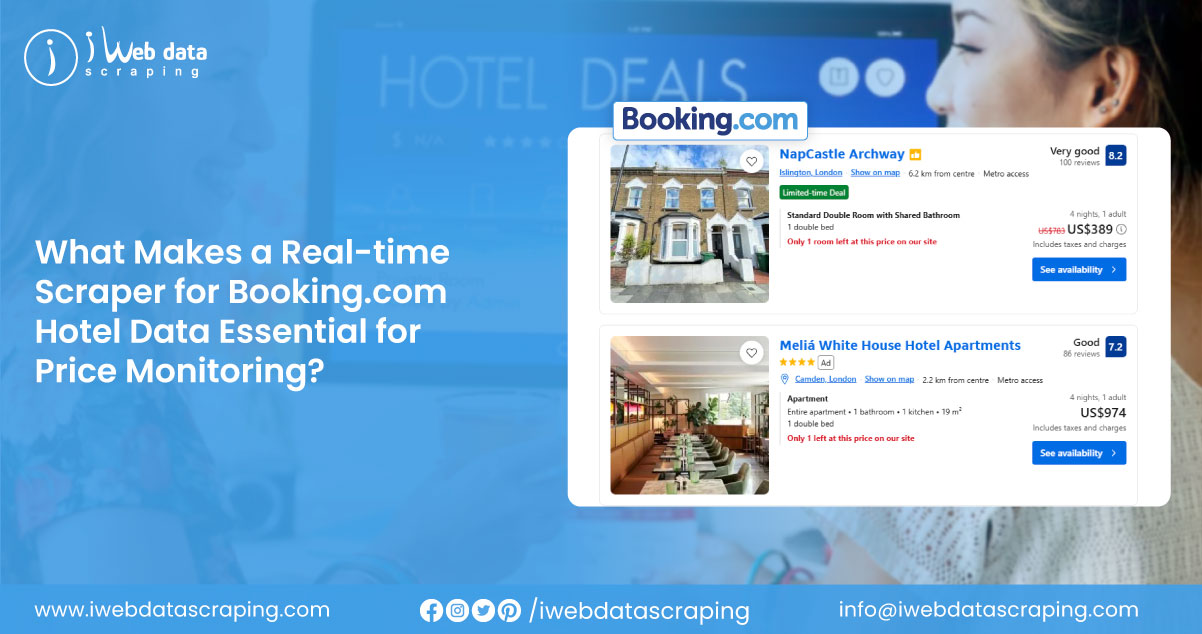
In today's rapidly evolving online travel ecosystem, Booking.com remains one of the most dominant hotel booking platforms worldwide. The platform significantly influences consumer choices and industry pricing strategies, with hotel listings spanning nearly every country and daily user engagement. As the hospitality sector becomes increasingly data-centric, businesses use Scraping Booking.com Price Data to unlock powerful market insights. This approach enables travel aggregators, hotel chains, pricing analysts, and tech startups to monitor competitor rates, analyze seasonal trends, and improve revenue strategies. Leveraging a Real-time Scraper for Booking.com Hotel Data ensures access to up-to-the-minute pricing information, helping businesses make informed decisions and respond swiftly to market fluctuations. The ability to Scrape Hotel Data from Booking.com empowers stakeholders to stay ahead in the competitive landscape by offering personalized services, optimized pricing, and a deeper understanding of customer behavior—making real-time data extraction an essential tool for success in modern hospitality.
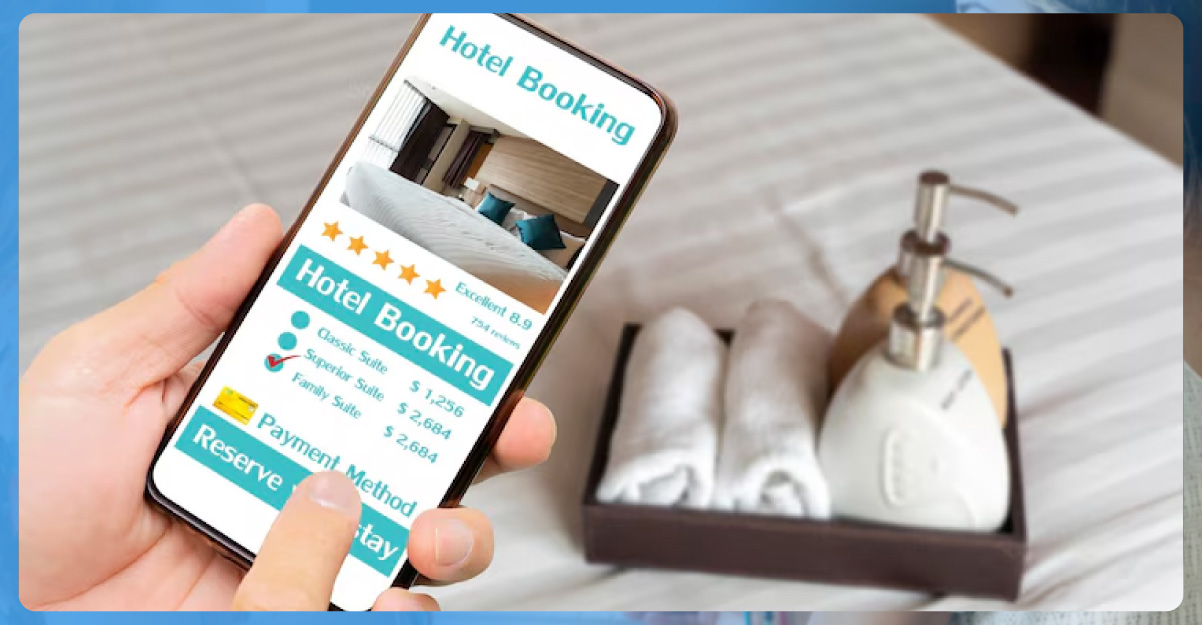
The accommodation industry is susceptible to changes in demand, location-specific trends, seasonal fluctuations, and real-time events. Platforms like Booking.com update their prices dynamically to reflect such shifts. Hotel pricing data is not just a collection of rates—it's a treasure trove of insights reflecting customer preferences, competitor strategies, and market movements.
By tapping into this data through web scraping, businesses can:
Whether you're an OTA (Online Travel Agency), a hotel revenue manager, or a startup building a hotel price comparison tool, this data can be turned into actionable intelligence.
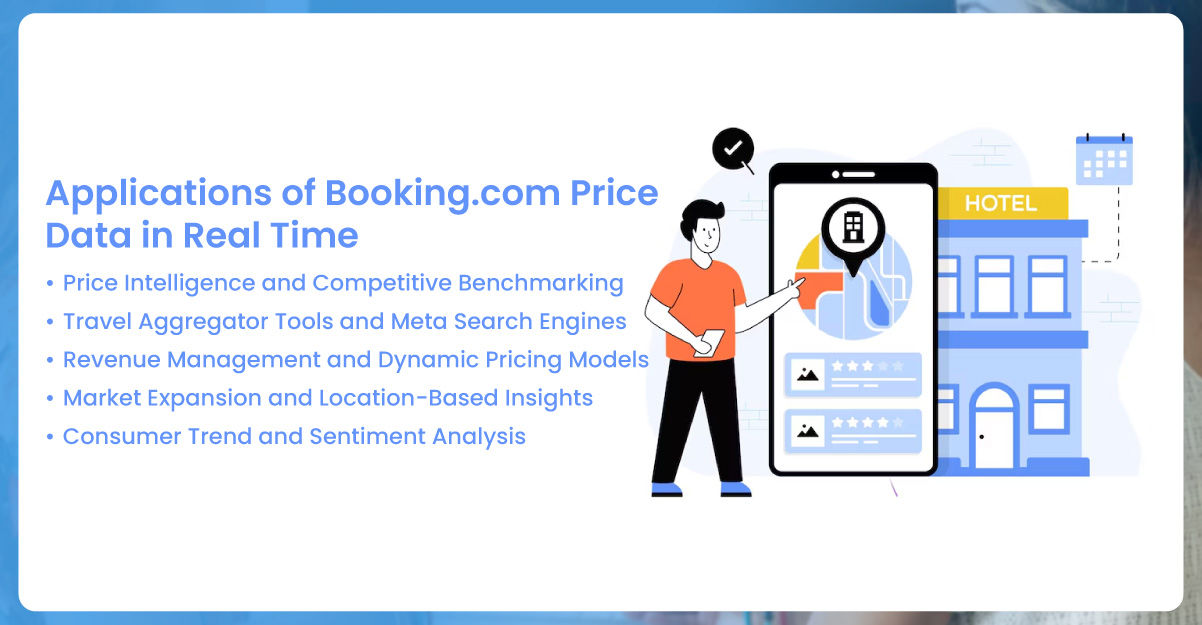
Real-time Booking.com price data offers critical insights for hotel chains, travel platforms, and pricing analysts. From dynamic pricing and competitive benchmarking to personalized recommendations and market expansion strategies, it empowers smarter, faster decisions across the travel and hospitality industry.
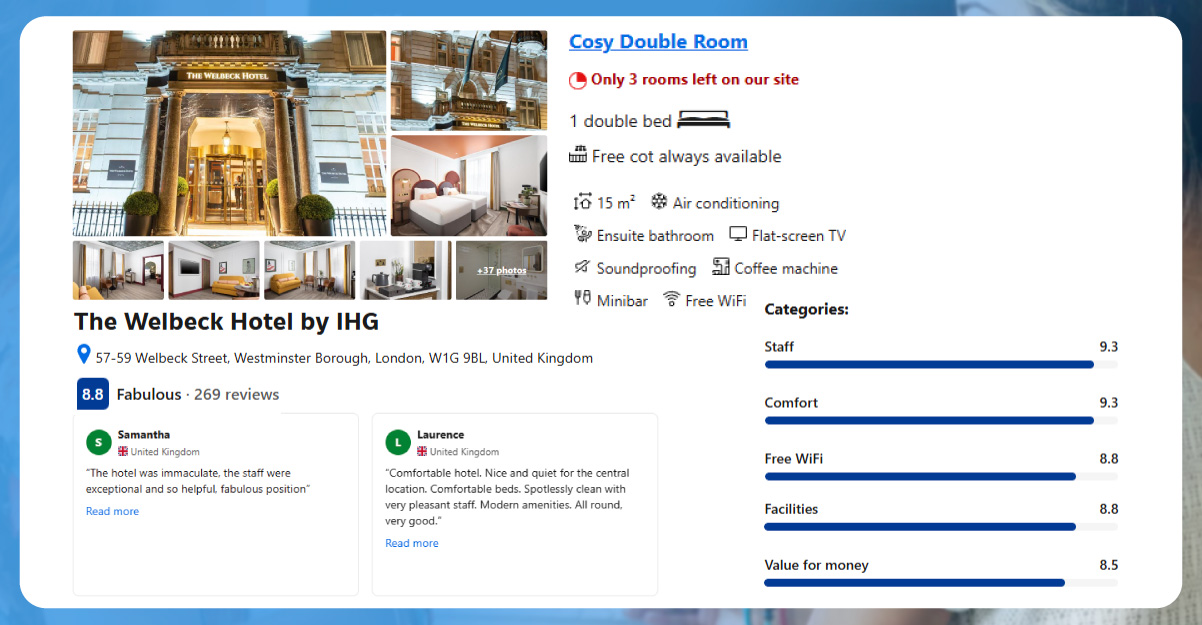
When scraping hotel listings from Booking.com, the following data points are typically collected for comprehensive analysis:
These variables offer a complete picture of a hotel's pricing strategy, demand indicators, and value proposition.
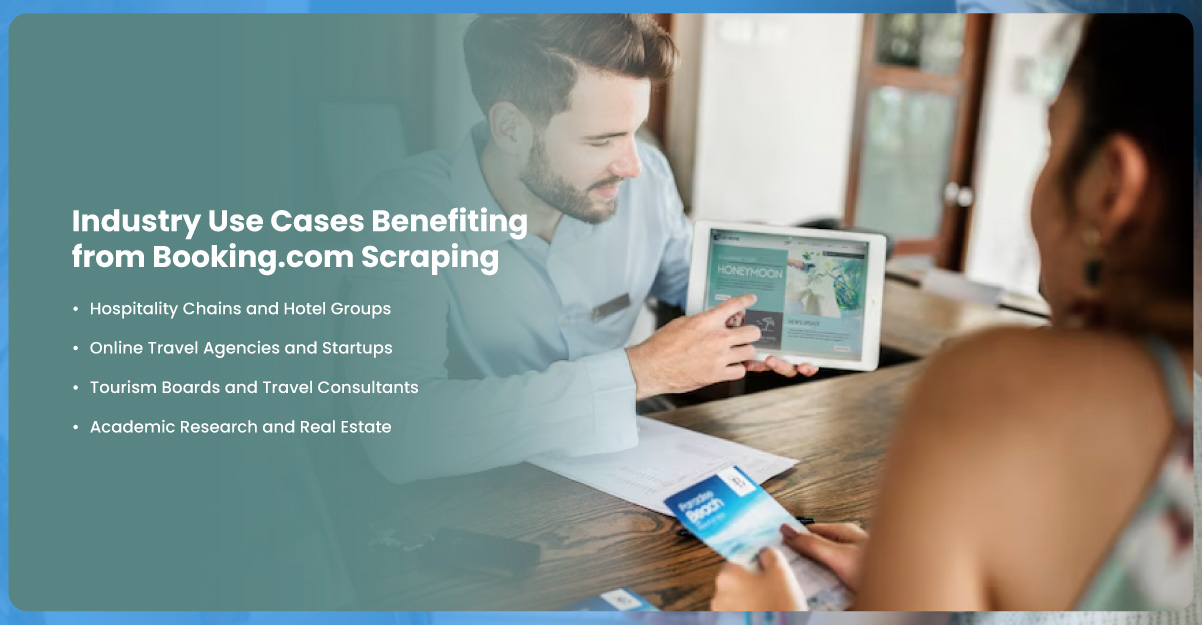
Industries like hospitality, travel tech, tourism analytics, and revenue management benefit greatly from Booking.com scraping. It enables dynamic pricing, competitor analysis, personalized recommendations, and strategic market expansion by providing real-time hotel data essential for data-driven decision-making and growth.
A. Hospitality Chains and Hotel Groups
Large hotel groups utilize scraped Booking.com data to track how third-party listings represent their brand, especially regarding pricing accuracy and discount application. It also allows for reputation monitoring and visibility into customer feedback.
B. Online Travel Agencies and Startups
Startups building travel solutions—like itinerary planners, budget finders, or AI-powered recommendation engines—leverage scraped data to deliver real-time and location-specific hotel recommendations. OTAs can also use this intelligence to fine-tune commission structures and partnerships.
C. Tourism Boards and Travel Consultants
Destination marketing organizations and consultants scrape Booking.com to understand average hotel pricing across regions. This helps them position their locations competitively, shape marketing content, and advise hospitality stakeholders on how to increase bookings.
D. Academic Research and Real Estate
University researchers and market analysts use hotel pricing data to correlate tourism patterns with real estate trends. High occupancy and premium hotel pricing in certain areas can indicate real estate investment potential or tourist infrastructure demand.
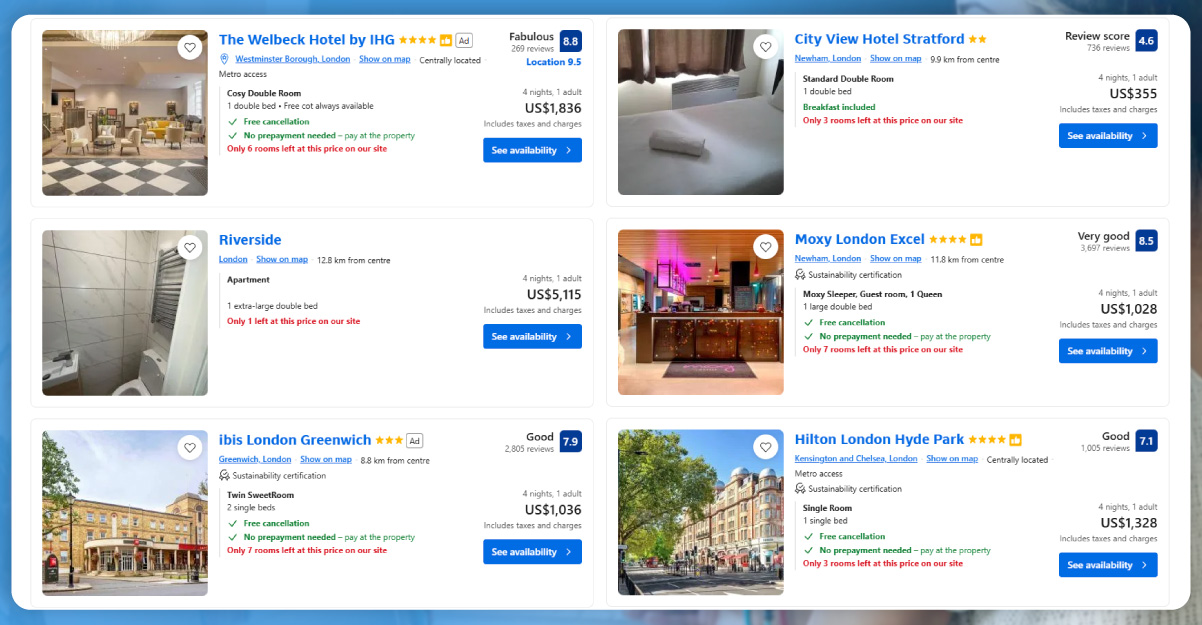
Unlike static content, hotel price data changes frequently—sometimes hourly. Special events, local festivals, and even weather can impact prices. That's why scraping this data at a regular cadence (daily or hourly) becomes essential for businesses that rely on precision. Real-time or near real-time scraping ensures you're not reacting to outdated insights. For example, a hotel may drop prices two days before a weekend if rooms remain unbooked, and scraping that data can help competitors quickly adjust their offers.
Businesses with the technical capacity to build or commission reliable scraping systems unlock ongoing competitive advantages without incurring major operational expenses.

AI-driven travel platforms increasingly use scraped Booking.com data to power their recommendation engines. These platforms can generate highly personalized suggestions that align with individual traveler preferences by leveraging variables such as hotel popularity, pricing trends, user reviews, and available amenities. This is especially valuable when businesses aim to Extract European Hotel Data from Booking.com, as it enables them to deliver region-specific recommendations based on real-time market dynamics. Through Web Scraping Booking.com Hotels in Europe, AI systems can cluster properties by category, value, or traveler type, flag overpriced listings, and forecast potential price drops. These intelligent insights enhance the user experience and drive greater retention, conversion rates, and brand loyalty by providing travelers with more intelligent, relevant choices tailored to their journey and budget.
Unlock powerful travel insights today—start leveraging our hotel data scraping solutions for smarter, real-time decisions!
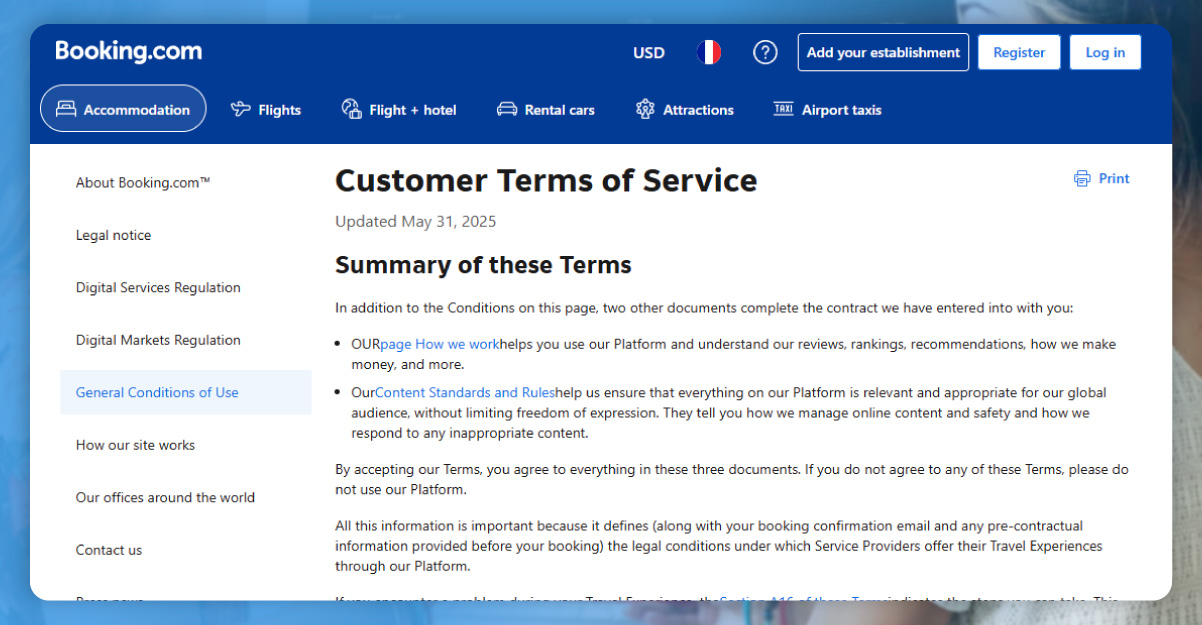
While this blog does not explore the challenges of scraping, it's important to emphasize that responsible data collection is essential. Ethical Web Scraping Travel Data practices help maintain platform integrity, safeguard user privacy, and ensure the long-term sustainability of data-driven solutions. Reputable companies that rely on Travel Intelligence Services often design their scraping tools to align with Booking.com's publicly available content, avoiding restricted areas and adhering to fair use guidelines. This approach supports legal compliance and fosters trust between data providers and consumers. For developers and businesses looking to gain insights from Travel & Tourism App Datasets, following responsible scraping protocols ensures that the data is accurate, up-to-date, and ethically sourced. By maintaining transparency and integrity in data collection, organizations can continue to benefit from powerful hotel pricing and availability insights without disrupting platform operations or violating terms of service—building a future where innovation and responsibility go hand in hand.
In a highly competitive and price-sensitive industry like travel, Booking.com hotel price data is more than just numbers—it's a critical layer of market intelligence. The benefits are vast and multi-dimensional, whether it's to outmaneuver competitors, identify emerging travel patterns, improve customer experiences, or automate pricing responses. Web Scraping in the Travel Industry enables businesses to tap into rich, real-time datasets that were previously inaccessible, unlocking a sharper understanding of evolving market dynamics.
As travel reclaims momentum globally, real-time access to accommodation data will become a competitive necessity. Using Web Scraping for Travel Data, companies can gain precise insights into pricing trends, availability shifts, and traveler behavior across regions. By integrating Price Monitoring Services into their analytics workflows, businesses can make informed decisions faster, respond agilely to competitors, and enhance user satisfaction. For those who act on this intelligence now, the returns could shape the next wave of travel innovation.
Experience top-notch web scraping service and mobile app scraping solutions with iWeb Data Scraping. Our skilled team excels in extracting various data sets, including retail store locations and beyond. Connect with us today to learn how our customized services can address your unique project needs, delivering the highest efficiency and dependability for all your data requirements